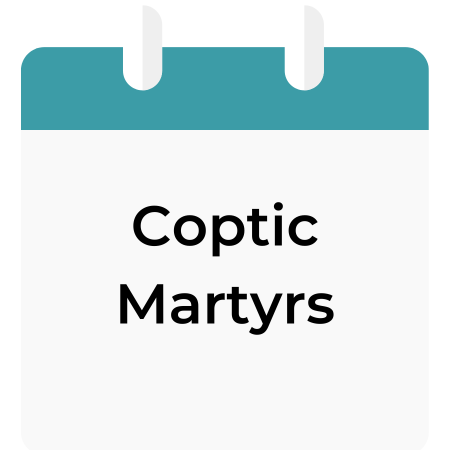The First Christian Martyr and Deacon
St. Stephen is known in Christianity as the first Martyr and Deacon. His story came to us through St. Luke’s testimony in Acts 6-7 about the apostolic period after Jesus’ Resurrection & Assentation.
During the apostolic period, as the number of early Christians increased, the twelve Apostles struggled to balance their preaching the word and serving the needy. They eventually decided to select seven from among them “of good repute, full of the Spirit and of wisdom” (Acts 6:3) and appointed them to serve the widows and the poor and devote themselves “to prayer and to the ministry of the word” (Acts 6:4). One of these seven was Stephen, “a man full of faith and of the Holy Spirit” (Acts 6:5), who throughout his time as a deacon he emerged as a powerful leader and preacher.
However, as he grew in spirit, he performed many “great wonders and signs among the people” (Acts 6:8), and became a bold and persuasive preacher, which drew attention, jealousy, and provoked hostility from the Jews, who they falsely accused him of blasphemy against Moses and God (Acts 6:11-14). These charges brought upon him the trial before the Sanhedrin, the Jewish council. Rather than defending himself directly, Stephen uses this opportunity to critique the Jewish leaders, accusing them of resisting the Holy Spirit and rejecting the prophets, just as their ancestors did, and further angered them when he critiqued their Temple by noting “the Most High does not dwell in houses made by hands” (Acts 7:48).
St. Stephen’s speech infuriated them, and they dragged him out of the city, but St. Stephen, “full of the Holy Spirit, looked up to heaven and saw the glory of God, and Jesus standing at the right hand of God” (Acts 7:55). When he told them what he saw, they refused to listen and started to stone him to death. As he dies, Stephen echoes the words of Jesus on the cross, saying, “Lord Jesus, receive my spirit” (Acts 7:59), and after crying, “Lord, do not hold this sin against them” (Acts 7:60), he received the crown of martyrdom.
Even though St. Stephen is only seen in two chapters, Acts 6 & 7, he left a permanent mark on the early Christian movement, inspiring generations of Christians to stand firm in their faith despite persecutions and the threats of death. As St. Augustine of Hippo wrote in his sermon celebrating the feast of St. Stephen “If Stephen had not prayed, the Church would not have had Paul.”
May we all learn from Stephen’s example of charity, humility, forgiveness, and the power of prayers for our adversaries.
Resources:
- Coptic Church.net
- Coptic Synaxarium
- ESV Bible
- Bible Gateway

